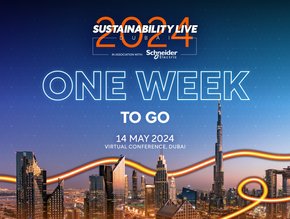The United Nations SDGs and their impact on ESG investing

When it comes to sustainable investing, it's essential to understand what exactly Sustainable Development Goals (SDG) and ESG are, their relation and the variable impact between the two. The United Nations member states adopted 17 SDGs in 2015, designed as a "blueprint to achieve a better and more sustainable future for all". These SDGs are intended to be accomplished by 2030. In this endeavour, ESG provides a framework for corporations to achieve their sustainability goals.
These goals encompass a wide range of interconnected issues, including poverty eradication, education, health, gender equality, sustainable energy, climate action, and more. They aim to tackle the root causes of global challenges and promote a more prosperous, just, and sustainable future for all. Achieving the SDGs requires collaboration, innovation, and collective efforts from governments, organisations, businesses, and individuals worldwide.
Investors establish ESG criteria as part of their investment-related commitment to achieving the SDGs. Environmental standards consider how a company's operations affect the natural world and the greater ecosystem. Social criteria depict interactions with its constituencies, such as customers, suppliers, employees, and communities. In terms of internal management, governance refers to using best practices through the governance structure, internal controls, and strong and independent risk functions.
The history of the United Nations 17 SDGs
The historic UN Summit in September 2015, when world leaders adopted the 17 SDGs of the 2030 Agenda for Sustainable Development, saw its official implementation on January 1, 2016. With these new, universally applicable goals, nations will mobilise their efforts over the next fifteen years to combat climate change, end all forms of poverty, and ensure that no one is left behind.
The SDGs, often called Global Goals, build on the accomplishments of the Millennium Development Goals (MDGs) and seek to eradicate all forms of poverty. The new goals are distinctive as they urge action from all nations – rich and poor alike – to advance development while preserving the environment. They understand that confronting climate change and environmental protection must coexist with initiatives promoting economic growth and fulfilling various social needs, such as education, health, social protection, and job opportunities.
Governments are required to take ownership of the SDGs and set up national frameworks for achieving the 17 Goals, despite the fact that they are not legally obligated. The principal duty to monitor and evaluate the results of the Goals' implementation rests with the countries, and this will necessitate the timely, accurate, and high-quality gathering of data. To contribute to global follow-up and review, regional follow-up and review will be based on national-level assessments.
How ESGs promotes sustainable investment
ESG investments suit you if you have strong opinions about social concerns and clean energy. Today, many investors aren't only concerned with how their investments will do financially. The critical part these investments can play in fostering beneficial global change, such as addressing global warming, is also of great interest. This is true, particularly for the millennial generation.
According to a Deloitte survey on millennial buying patterns, 42% of this generation would be more likely to stick with a company if they thought it positively impacted society. Companies that are not ESG-friendly may suffer as millennials surpass baby boomers as the most significant spending demographic. Over time, methods for incorporating ESG principles into the investing process have changed. Although early ethic-based approaches like negative screening are still applicable today, many other new tactics can be included.
ESG investing is thus an investment strategy that creates a framework for business, social and environmental risks. A well-thought ESG investment includes the following factors:
Environmental: Businesses unavoidably impact the environment, but they may create policies to lessen or cancel out those effects or even have a positive impact in areas like carbon emissions, water use, green energy, pollution, and waste management, among others.
Sustainability: Companies' interactions with the people and institutions in their community also have an impact. Policies regarding diversity and inclusion, employment procedures, workplace safety, and charity exemplify how this impact is manifested.
Governance: Businesses have internal systems of practices, procedures, and controls for making decisions, running operations, and adhering to the law. Board diversity, executive compensation, company ethics, fair competition, and financial procedures are all part of governance.
Aligning SDG with company values
Companies choose different SDGs aligned with their company values based on several factors. Here's how companies typically approach the selection of SDGs:
- Mission and values: Companies first examine their mission and core values to identify the social and environmental issues that resonate with their purpose. They consider how their business activities can contribute to specific SDGs that align closely with their organisational values.
- Materiality assessment: Conducting a materiality assessment helps companies identify the most significant social, environmental, and governance issues relevant to their industry, stakeholders and business operations. This assessment helps prioritise the SDGs that are most material to the company's operations and stakeholders.
- Stakeholder engagement: Engaging with stakeholders, including employees, customers, investors, and communities, provides valuable insights into their concerns and expectations. Companies take into account the feedback and perspectives of their stakeholders to determine which SDGs are of particular importance to their key stakeholders.
- Collaboration and collective impact: Companies explore opportunities for collaboration and collective impact by identifying SDGs that resonate with industry peers, NGOs, governments, and other stakeholders. Collaborative efforts can amplify the impact of individual actions and foster systemic change.

Benefits offered by ESG investing
The market share of ESG investing has been continuously increasing for decades, so it's not just a passing fad. A third of the total global assets under management are currently anticipated to be made up of ESG assets, valued at US$4t.
This industry is only anticipated to expand as worries about social injustice, climate change and governance practices become more mainstream. In addition to being better for the environment and our communities, the ESG investment strategy has demonstrated outstanding long-term growth in return. Additionally, it is more durable during market downturns than other stocks.
Similarly, investor risks, like the long-term effects of climate change on enterprises, can be reduced with the aid of ESG investment. More systemic risk reporting openness is required as ESG investments become more popular. Institutional investors and advisors now have access to the knowledge they need to make wiser investment choices and suggestions.
Integrating ESG principles and supporting the SDGs provides companies with several benefits, including enhanced brand reputation, improved risk management, access to capital, increased operational efficiency, attraction and retention of talent, and long-term business resilience. Furthermore, aligning business strategies with the SDGs helps companies contribute to global sustainability and social progress, fostering a more inclusive and prosperous future.
The impact ESG has on investing
The investment sector has been significantly impacted by the implementation of SDGs. It has given businesses a framework to describe their sustainability initiatives and made it simpler for investors to match their investment strategies with the SDGs. The inclusion of SDGs into investment strategies has accelerated the transition towards impact investing and raised the demand for ESG data. By connecting investments with the SDGs, investors may contribute to sustainable development while attaining their financial objectives. Hence, implementing the SDGs in the investment sector is a big step towards building a more sustainable and inclusive world economy.
******
For more insights into Sustainability - check out the latest edition of Sustainability Magazine and be sure to follow us on LinkedIn & Twitter
Other magazines that may be of interest - EV Magazine | Energy Digital
Please also check out our upcoming event - Sustainability LIVE in London at the BDC on Sept 6/7th 2023
*******
BizClik is a global provider of B2B digital media platforms that cover 'Executive Communities' for CEO's, CFO's, CMO's, Sustainability Leaders, Procurement & Supply Chain Leaders, Technology & AI Leaders, Cyber Leaders, FinTech & InsurTech Leaders as well as covering industries such as Manufacturing, Mining, Energy, EV, Construction, Healthcare + Food & Drink.
BizClik, based in London, Dubai & New York offers services such as Content Creation, Advertising & Sponsorship Solutions, Webinars & Events.







